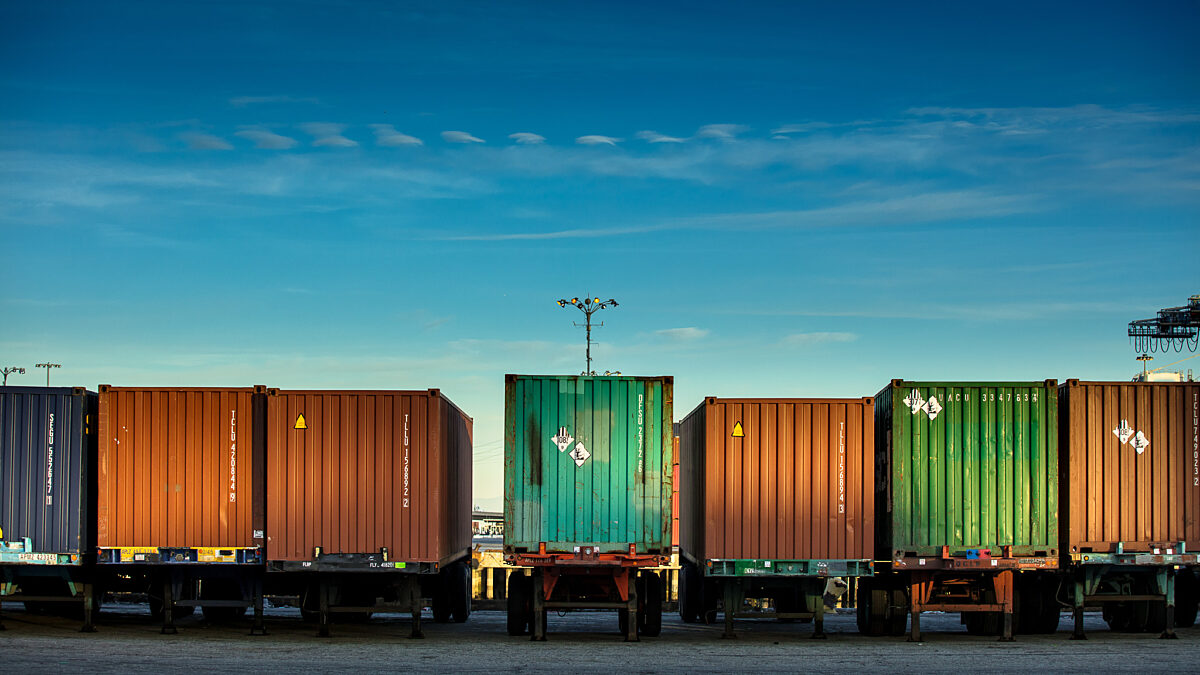Portmania: Pileup at the West Coast Ports Continues
Guest Author
Special Contributor to FB.org

photo credit: Getty
Guest Author
Special Contributor to FB.org
U.S.-grown apples and pears rot on the docks never again to see the light of day. Bins normally piled high with U.S. produce at markets across Asia are looking scant. Storage facilities across the country are packed with tons of meat that should be on dinner plates around the world. Why? Loading docks from Seattle to San Diego—once bustling with activity—are now moving with all the speed of a DMV line thanks to prolonged contract negotiations between the Pacific Maritime Association and the International Longshoremen and Warehouse Union.
| Newsline: U.S. Market Share At Risk Because Of Ports Issue | |
| Newsline: West Coast Ports Labor Dispute Has Ripple Effect Across U.S |
The dock workers ' contract expired in July, and although workers continue to show up, not much is getting done. Last weekend the ports were brought to a halt as shippers and port operators suspended operations for two days. The financial losses are stacking up along with the unmoved cargo. From $40 million per week in meat sales to $70 million in wasted fruit in Washington, these numbers are a mere fraction of sales and long-term market share losses that farms, ranches, lumber yards and factories are suffering.
While the two parties slog out salary and benefit terms, American businesses are paying the price as they lose skilled workers, valuable sales and good standing with our largest overseas customers. Fresh produce and meat exports to Asia are largely on hold until the docks are running at a normal pace again. Pork producers are among those being hit especially hard with no way to reach six of their top 10 world customers, all Asia/Pacific countries. While our supply is landlocked, the demand has not dwindled, and our overseas customers are now left to find other, more reliable, suppliers in the meantime.
Delays, added costs and failed shipments are putting our trade relationships on shaky ground. Agreements to open up more trade in Asia will do us little good if we can 't meet our end of the bargain. "This is turning into a disaster," one potato exporter noted. "If we cannot supply to the Pacific Rim as we have assured over recent months, we will lose volume and confidence of these newly established customers."
An estimated 60 percent of shippers have redirected their products to avoid the clogged ports. Although non-perishable products can be re-routed to Eastern U.S. ports through the Panama Canal, this still adds time and significantly ups the price tag. As a last resort, some retailers have taken to the skies to bypass the traffic jam. The U.S. military even resorted to air shipments to get yogurt and cottage cheese to troops in Japan and South Korea.
How did it get to this point? Last May, the PMA and ILWU began negotiating terms for a new contract. Weeks passed. The contract expired in July and work at the ports slowed. By the time holiday shipments were picking up in the fall, retailers could feel the sting. Two- to three-week delays in just getting goods off ships became standard operating procedure. In some cases, truck drivers would sit at the docks all day waiting for a shipment to be offloaded, only to be turned away empty-handed.
Meanwhile, threats of strike and full shutdown continued to loom. In January, both parties brought in a federal mediator. By month 's end a deal seemed nearly in sight. Under the new five-year contract the PMA presented, dock workers would see a 3 percent pay raise each year and full coverage for healthcare. PMA estimates the average dock worker 's salary to be $147,000 per year under the expired contract. Yet, negotiations continue.
Once a deal is finally struck and the ports return to operating at their normal speed, it 's still expected to take another eight weeks to clear the backlog. Some losses will never be recovered, but America 's farmers and ranchers are eager to get back to business and restore the trade relationships we 've worked so hard to build.
Kari Barbic is a media specialist for the American Farm Bureau Federation.
Trending Topics
VIEW ALL